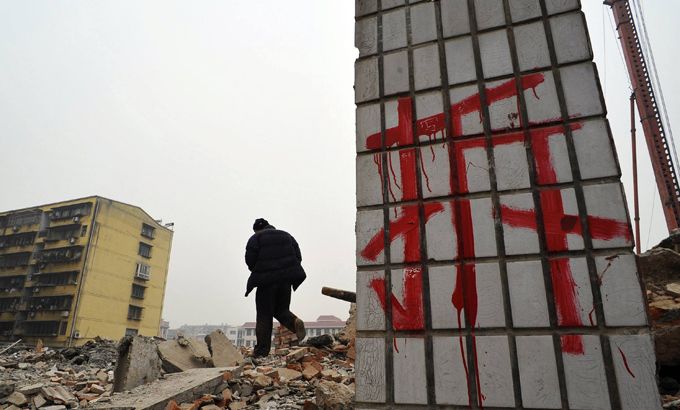
Can China stop forced evictions?
As popular discontent continues to grow over land grab issues we ask how big a threat this is to the central government.
Forced evictions in China are on the rise, according to an Amnesty International report, with government forces brutally kicking millions of people off their land in unprecedented numbers.
The victims are people caught up in deals between local governments and property developers.
|
“Not all evictions are an abuse or illegal but in China many are accompanied by lack of consultation, lack of compensation… The central authorities also recognise that the issue of forced evictions is the biggest, single cause of popular discontent in China today.” – Nicola Duckworth, Amnesty International senior research director |
The report says rapid construction boost is to blame with the number of evictions going up in the last three years, and this has now become a major source of public discontent.
People are forced from their homes to make way for business ventures. Local authorities reportedly seize land in suspicious deals with property developers.
Officials rely on the profits from land sales to make up for huge budget shortfalls. Land sales are estimated to contribute to 46 per cent of local governments’ total income.
The Amnesty report also found that violence is used against some people during the eviction process. Of the 40 cases examined over two years up until January 2012, nine resulted in the death of those resisting eviction.
Forced evictions in urban and rural areas are widespread in China.
One of the most notable examples in recent years was the run-up to the 2008 Olympic Games in Beijing when many neighbourhoods in the capital were torn down to make way for new developments.
|
“In this rapid development there are lots of corruption and abuse of power, and great inequalities, and I think these matters would be addressed. Part of the problem is also [marginalisation of] migrant workers as flagged up in a recent World Bank report.” – Andrew Leung, an independent China analyst |
The Center on Housing Rights and Evictions estimates that 1.5 million people in and around Beijing have been forced from their homes.
According to Human Rights Watch, Chinese authorities shut down more than 50 unregistered schools for migrant workers, leaving tens of thousands of children without access to education.
To date, legal action by evictees has been ineffective. Courts were ordered to stop hearing cases from residents and lawyers were restricted from representing them.
As a result, many found it impossible to find legal representation, let alone have their case heard.
In this episode of Inside Story we ask: Can the Chinese government stop these forced evictions? Just how much of a problem is this to China’s leaders? And can this lead to widespread civil unrest?
Joining the discussion with presenter Jane Dutton are guests: Nicola Duckworth, a senior research director at Amnesty International; Martin McCauley, an international affairs specialist; and Andrew Leung, an independent China analyst and a professor at the Metropolitan University and Hong Kong’s former representative in Europe.
|
“China has only been a socialist market economy for 20 years, and one of the major problems is property rights which requires decades to evolve, and these peasants don’t really have any piece of paper…there is no central land registry and so there is always conflict over the land.” Martin McCauley, an international affairs specialist |